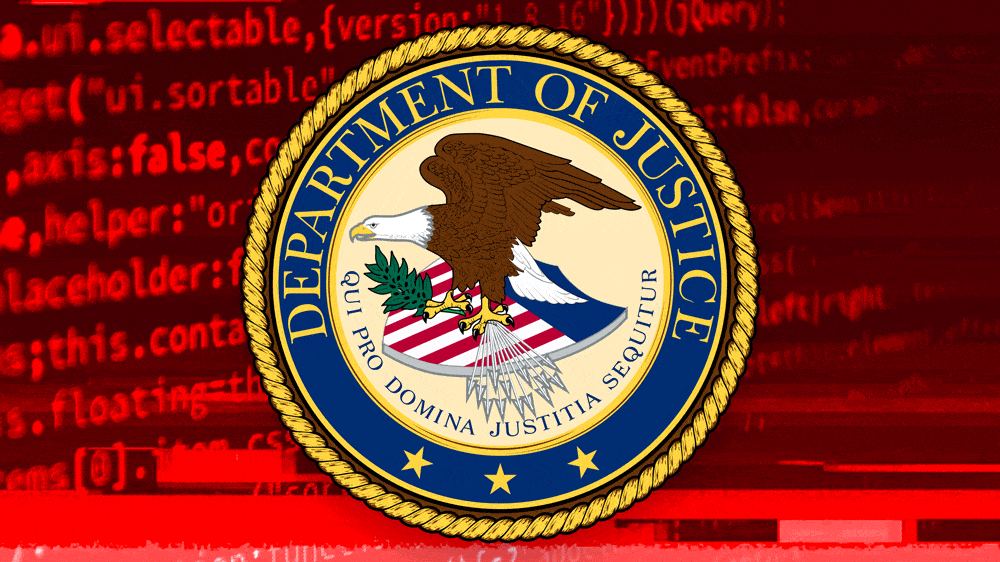Department of Justice Reveals ‘Glitch’ Shielded Officials From Public Scrutiny
A technical glitch kept the Justice Department from reviewing all the email accounts it was supposed to for almost a year, according to a new, previously unreported court filing.
That means emails from some DOJ officials weren’t examined in response to records requests and lawsuits—so key emails that should have been made public months ago could have been inadvertently withheld. The department is now redoing records searches to try to belatedly fulfill requests.
It’s a revelation that concerns transparency advocates and suggests the department struggled to release internal communications as required by law.
Vanessa Brinkmann, senior counsel at the department’s Office of Information Policy, made the disclosure in a court filing in litigation brought by Citizens for Responsibility and Ethics in Washington (CREW). The organization has sued the Justice Department for internal communications among senior officials regarding the decision to release text messages that former FBI agent Peter Strzok sent his then-lover, former FBI attorney Lisa Page. The department’s decision to show Strzok’s texts to reporters had a tectonic political impact: In the texts, Strzok—who would go on to join special counsel Robert Mueller’s team—bemoaned the ascent of then-candidate Donald Trump, saying his election would be a disaster. Trump and his allies seized on the texts as evidence of corruption in Mueller’s probe and the so-called “Deep State.” Trump has tweeted about Strzok scores of times.
The department’s decision to share the texts with reporters has drawn significant scrutiny from outside watchdogs, who say they fear it could have been a politically motivated effort to confirm Trump’s worst suspicions about federal law enforcement. And that’s why CREW sued the DOJ for internal communications about the move.
But Justice Department officials admitted earlier this month that they have had trouble complying with CREW’s document request, in part because a technical glitch kept them from searching the email accounts of some of the officials involved in the decision to share the texts. Since last October, Brinkmann said, the glitch has kept Justice Department officials from searching the email accounts of some officials who communicated about the decision to share Strzok’s texts.
Brinkmann didn’t say which officials’ emails were shielded from scrutiny. But it could have included some of the department’s most powerful, as CREW asked for emails from senior leadership offices, including Attorney General Jeff Sessions’ office, the Office of Legislative Affairs, and Deputy Attorney General Rod Rosenstein’s office.
A spokesperson for the department declined to comment since litigation is ongoing.
In her declaration, Brinkmann said the department was repeating its email searches to find messages that may have been excluded because of the glitch. But that effort won’t satisfy all transparency advocates. Tom Fitton, who heads the conservative group Judicial Watch, said the department told his organization that the glitch impacted some of their FOIA requests. Fitton said he worries department officials could have deleted responsive emails in the ten months when the malfunction shielded them from searches.
“Did anyone delete emails?” he said. “Were emails deleted from the system before they went back and captured them? It raises questions as to whether the emails were lost.”
“There’s always more that meets the eye in these sorts of issues when it comes to government agencies,” he said. “And in this case, nearly a year later we found out that the database was incomplete and then they went back and tried to recapture those accounts that had not been taken up. Is there an email gap?”
Jordan Libowitz, a spokesperson for CREW, said Brinkmann’s admission disturbed his group.
“It is pretty troubling to find out well into litigation that DOJ, for whatever reason, had not been searching all accounts, especially when we were only asking for senior leadership at DOJ,” he told The Daily Beast. “We’re not saying it was intentional, but it’s certainly problematic for transparency.”
The department’s responsiveness to document requests has been a huge point of contention for Congressional Republicans and outside activists—including groups like Fitton’s—scrutinizing the circumstances leading up to Mueller’s investigation. Scores of congressmen and outside operatives have worked to investigate the investigators, winning cheers from the president himself via Twitter. As a result, the process of complying with document requests—generally dry and byzantine—has snagged headlines and energized Congress.
And this isn’t the first irregularity to dog the Justice Department as it works to keep up with document demands. The department struggled to find texts Strzok and Page exchanged between Dec. 14, 2016, and May 17, 2017, as NPR reported, and blamed a technical glitch for the problem.


